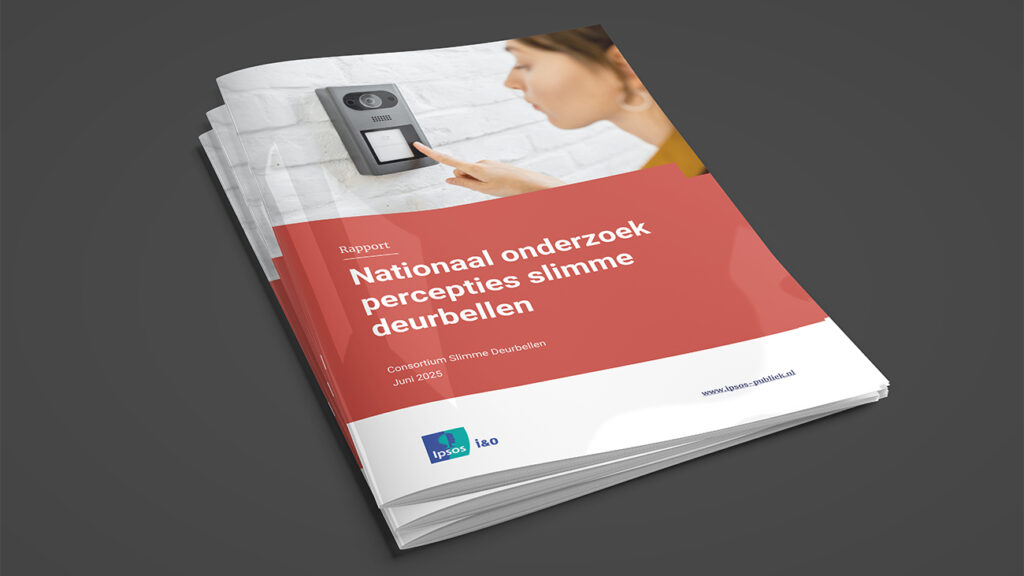Results national survey smart doorbells
National survey smart doorbells: popular, but privacy awareness lags behind
On behalf of the Consortium Smart Doorbells, Ipsos I&O recently conducted a nationwide survey on perceptions about smart doorbells. Many owners appreciate the convenience (70%) and sense of security (62%) offered by such a smart doorbell. However, the survey also shows that usage frequently violates privacy laws. For example, many doorbells film not only one's own front door, but also public spaces. In addition, many people are unaware that many of these smart devices make audio recordings in addition to video and that these are then stored. The survey results highlight the need for better education and awareness.

Smart doorbells research
Today, about one in seven homes in the Netherlands has a smart doorbell. That adds up to about 1.2 million smart doorbells. These doorbells can see and hear who or what is at the door. They are connected to the internet, allowing the owner to watch along live or watch back and listen to recordings. The study consisted of a survey of 761 respondents and two focus groups. The survey provides a representative picture of perceptions about smart doorbells in the Netherlands. Fifteen per cent of respondents were outspokenly negative about smart doorbells. More than half of all respondents minded data being collected on them. Some 70% expressed concerns (not in all but some cases) about manufacturers storing recordings. The focus groups also showed that participants adjust their opinions and take a more critical view the more they learn about the invasion of privacy of neighbours, passers-by and parcel deliverers. "I thought it was just a handy gadget. Only now do I realise how much privacy of others I unintentionally violate", said one participant.
Little communication with neighbours
The survey further shows that 75% of Dutch people think that neighbours should at least inform them when buying a smart doorbell; 59% even think they should consult them about it. In practice, however, this hardly ever happens: 84% of owners say nothing to their neighbours. A large proportion of smart doorbell owners have no desire to make adjustments to their doorbell (44%). Of the suggested modifications, a sticker or a sign next to the smart doorbell has the most support (41%).
Balancing security and privacy
The Consortium Smart Doorbells, which consists of Responsible Sensing Lab, TU Delft, AMS Institute, Privacy First and the municipalities of Amsterdam, Breda, The Hague and Groningen, is committed to responsible use of this technology. Thijs Turèl, Programme Manager Urban Digitalisation at AMS Institute and consortium member: "Six out of seven doors in the Netherlands do not yet have a smart doorbell. We hope the results of this survey will make the residents of those front doors think: do I really need it? Am I not causing a nuisance and how do I use it responsibly?" In addition, the consortium is working on interventions to better facilitate neighbourhood conversations and is researching specific hardware adaptations such as a camera lens that can expand the background image beyond two metres blurry makes, to better protect the privacy of local residents.
For more information on the study and the Consortium Smart Doorbells, see responsiblesensinglab.org and ipsos-public.co.uk. The full research report can be found HERE (pdf).
